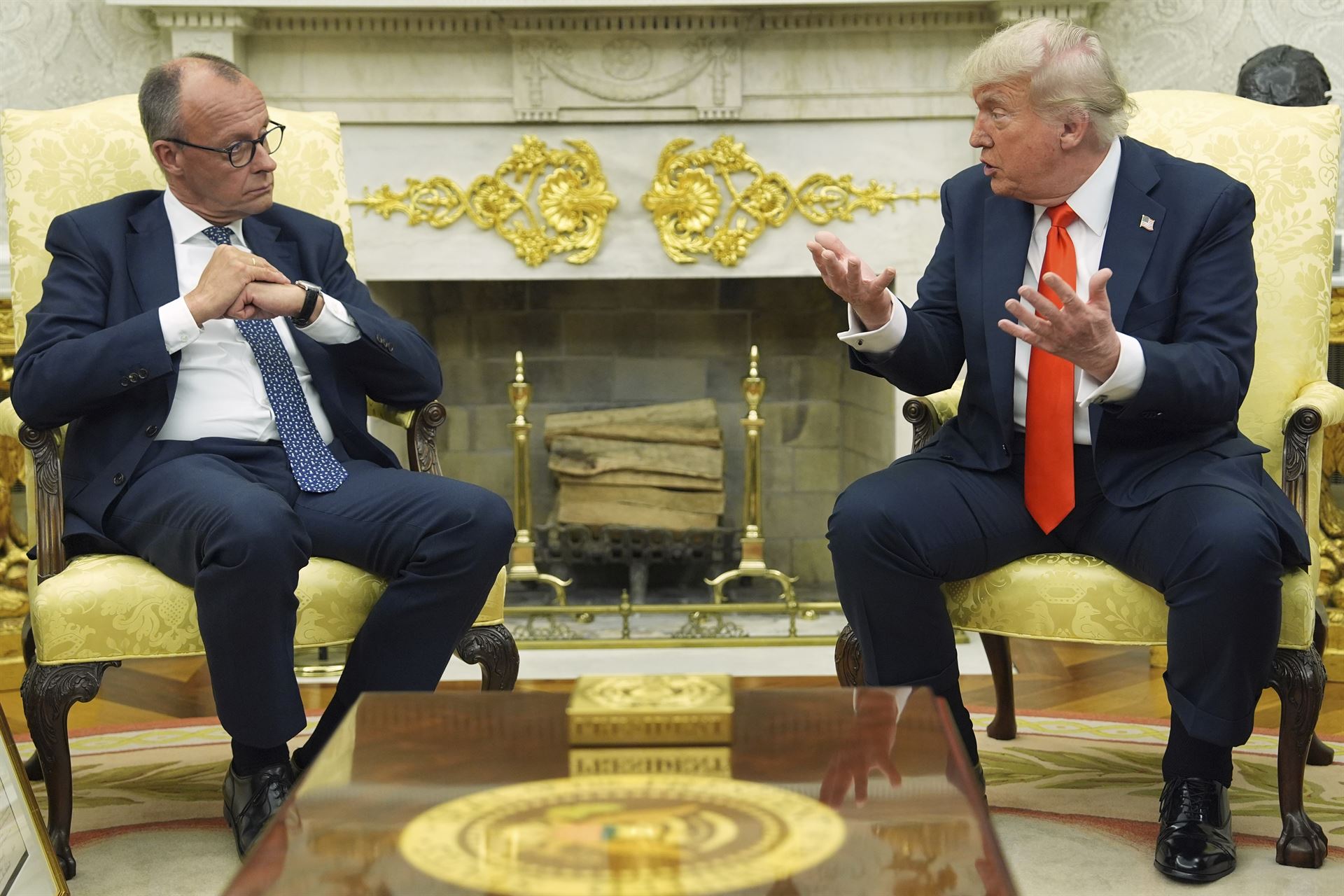
BERLIN - During his inaugural visit to Washington earlier this week, German Chancellor Friedrich Merz managed to project a message of solidarity with US President Donald Trump.
However, despite an atmosphere of unity, solutions to the differences between the two sides over the Ukraine crisis, defense spending and trade remained elusive, challenging the resilience of the US-German ties.
Trade issues unclear
In Germany, the meeting was viewed as a notable achievement, as the two sides avoided public confrontation, given the history of recent Oval Office encounters with other foreign leaders.
According to a statement by Merz after the meeting, the two sides discussed tariffs and trade policy and agreed to maintain close cooperation on the matter.
Trump has repeatedly criticized Germany's trade surplus with the United States and threatened new tariffs on European goods.
ALSO READ: Trump says it may be better for Russia-Ukraine conflict to last longer
The European Commission last week sharply criticized the United States' decision to raise tariffs on steel and aluminum imports, warning that the move could prompt swift European retaliation.
"We'll end up hopefully with a trade deal," Trump said at a press briefing on Thursday, which he attended with Merz. "Or we'll do something, you know, we'll do the tariffs."
Merz is seeking Trump's support on key issues such as tariffs, particularly as the German economy faces the prospect of a third consecutive year of recession, said Cui Hongjian, professor at Academy of Regional and Global Governance at Beijing Foreign Studies University.
Setting the tone
At the press briefing, Trump compared the Russia-Ukraine conflict to "two young children fighting," and signaled that he might have to be tough on both Russia and Ukraine to solve the crisis.
READ MORE: Germany's Merz to face Trump in Oval Office on inaugural trip
However, Merz did not directly challenge Trump's analogy in public, instead reiterating the horror of the conflicts, citing the damage done to Ukrainian civilians.
The German leader's primary objective was not to resolve long-standing disputes but to set a constructive tone and avoid a public fallout with Trump, Cui said.
During his first term, Trump had voiced dissatisfaction against Germany's failure to meet NATO's defense spending target and threatened to reduce US military presence in Germany.
Johann Wadephul, Germany's new foreign minister in Merz's government, recently said that Germany backs the US proposal to increase defense spending to 5 percent of its GDP.
During Thursday's meeting, Trump confirmed that the US troops would remain in Germany.
READ MORE: Friedrich Merz sworn in as Germany's new chancellor
Lack of trust
Earlier this year at the Munich Security Conference in Germany, US Vice-President JD Vance voiced sharp criticism against European politics, noting that Europe's biggest challenge was not external threats, but internal democratic erosion.
The remarks drew widespread dissatisfaction from European politicians and also raised concerns about the state of transatlantic relations under the Trump administration.
After the federal elections held in Germany in February, Merz emphasized the need to strengthen Europe and achieve independence from the United States.
The very fact that the absence of open conflict is being hailed as a "success" speaks volumes about the fragility of the US-German relationship, Cui said, adding that this cautious approach, where sensitive topics are sidestepped, signals a lack of mutual trust.
The governing style of the Trump administration has caused a "fundamental shift" and "immense harm" to the transatlantic alliance, said Wu Huiping, deputy director of the German Studies Center at Tongji University based in Shanghai.
Trump's tendency to measure relationships through trade deficits directly exposes the conflict of interest with Europe, making a return to the previous state highly unlikely, WUSaid.


